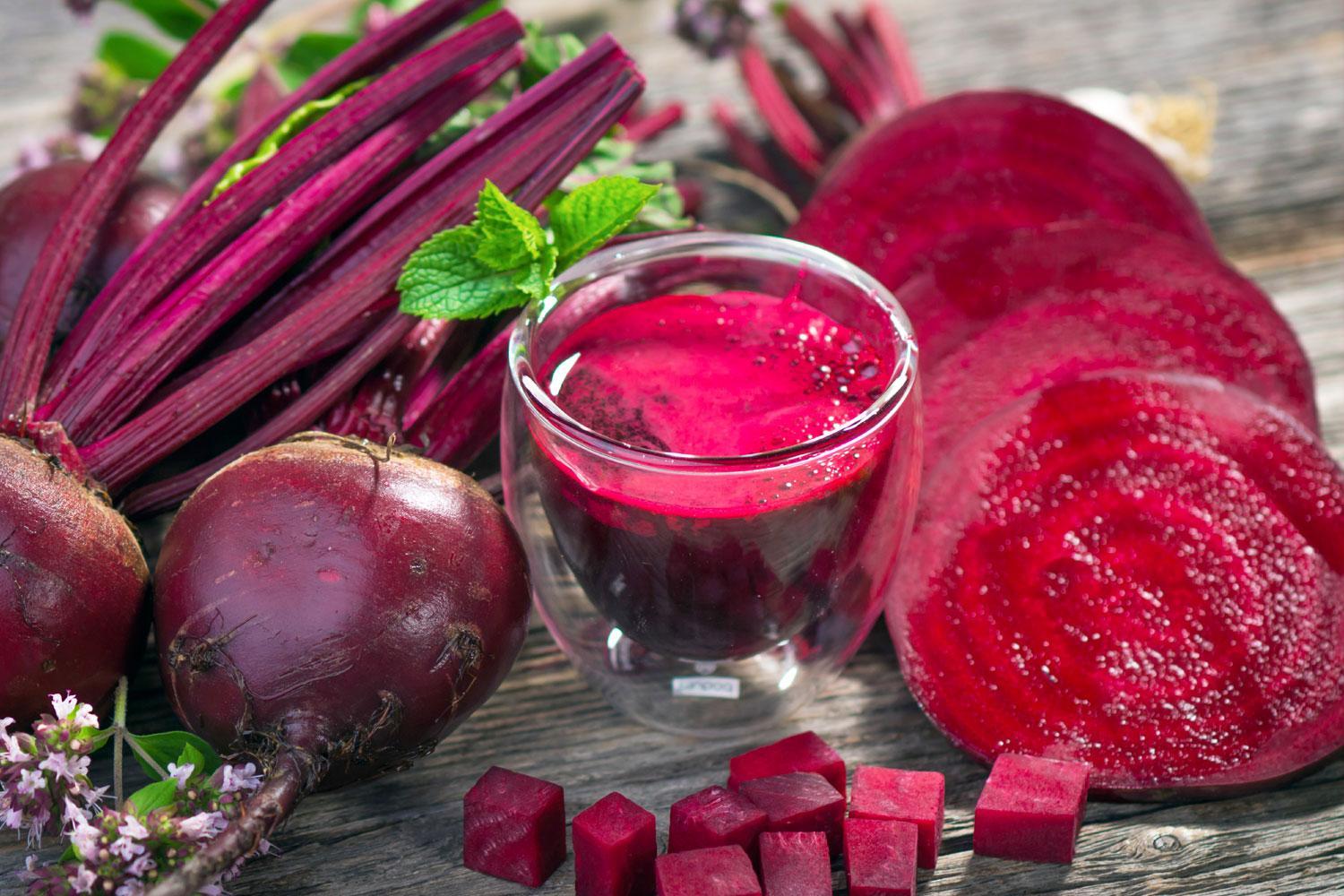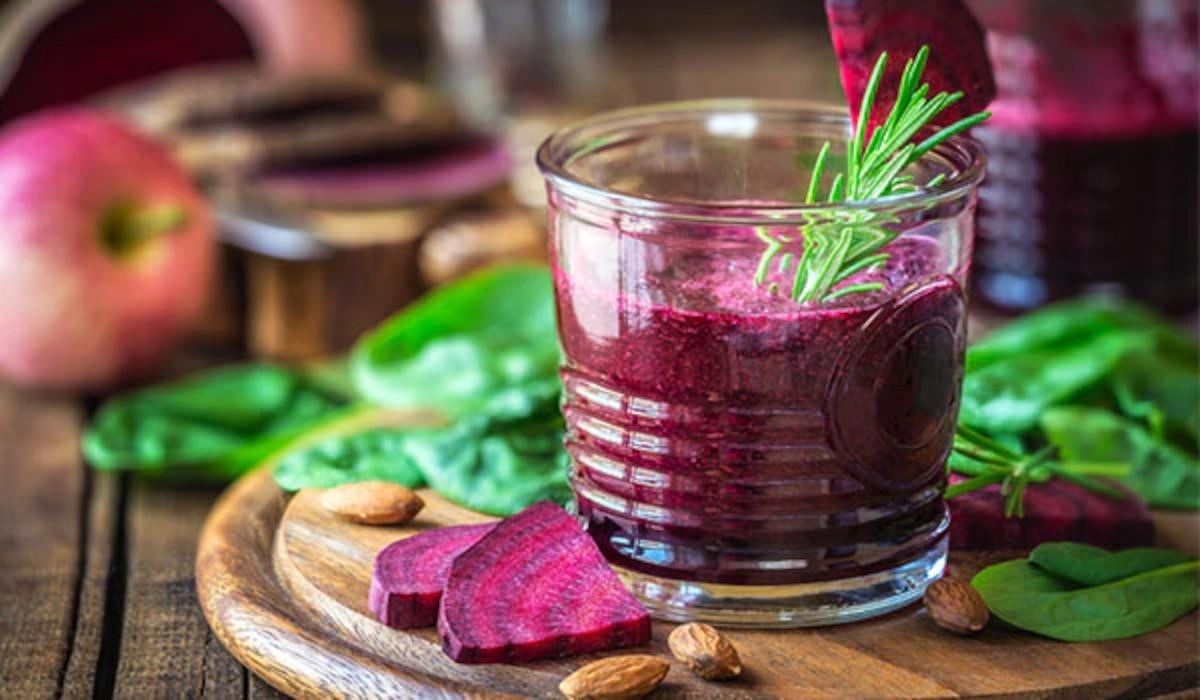
Beetroot juice has gained popularity in recent years for its numerous health benefits. Packed with essential nutrients and powerful antioxidants, beetroot juice offers a wide range of advantages for your overall well-being. In this article, we will delve into the specific benefits of beetroot juice, explore the optimal time to consume it, discuss who should avoid beetroot juice, and examine the potential effects of daily consumption.
Sub Outline

1. Beetroot Juice Benefits
Beetroot juice provides various health benefits due to its rich nutritional composition. Here are some of the significant advantages:
1.1. Enhanced Exercise Performance
Beetroot juice contains high levels of dietary nitrates, which can improve exercise performance by enhancing oxygen utilization and increasing blood flow. These properties make it an excellent choice for athletes and individuals seeking to enhance their physical performance.
Example: A study conducted on cyclists found that consuming beetroot juice before exercise resulted in increased stamina and improved cycling performance compared to a placebo group.
1.2. Lowered Blood Pressure
The natural nitrates present in beetroot juice can effectively reduce blood pressure levels. Nitrates are converted into nitric oxide in the body, which helps relax and dilate blood vessels, leading to improved blood flow and lower blood pressure.
Example: A review of studies concluded that regular consumption of beetroot juice significantly decreased systolic and diastolic blood pressure in both healthy individuals and those with hypertension.
1.3. Improved Brain Function
Beetroot juice contains compounds known as betalains, which possess antioxidant and anti-inflammatory properties. These compounds have been associated with improved cognitive function and neuroprotective effects, potentially reducing the risk of age-related cognitive decline.
Example: A study involving older adults showed that regular consumption of beetroot juice led to better cognitive performance and increased cerebral blood flow, suggesting a positive impact on brain health.
1.4. Liver Detoxification
The betalain pigments present in beetroot juice support liver function and promote detoxification. These compounds aid in breaking down toxins and removing them from the body, thereby supporting overall liver health.
Example: Research conducted on animal models demonstrated that beetroot extract reduced oxidative stress and enhanced liver function markers, highlighting its potential as a natural liver detoxifier.
2. What is the Best Time to Drink Beet Juice?
Determining the optimal time to consume beetroot juice can maximize its benefits. Factors such as nutrient absorption, exercise performance, and sleep patterns should be considered when deciding on the best time for consumption.
2.1. Pre-Workout
Drinking beetroot juice before a workout or physical activity allows your body to take advantage of the nitric oxide boost it provides. This can enhance exercise performance, increase endurance, and improve oxygen utilization during physical exertion.
Example: Consuming beetroot juice approximately one to two hours before exercise has been shown to yield favorable results in various studies, leading to improved stamina and prolonged exercise duration.
2.2. Morning Routine
Incorporating beetroot juice into your morning routine is a popular choice due to its numerous health benefits and ability to provide an energy boost. Starting your day with beetroot juice can help kickstart your metabolism and provide essential nutrients early on.
Example: By consuming beetroot juice in the morning, you can benefit from its blood pressure-lowering effects throughout the day, promoting cardiovascular health and overall well-being.
2.3. Before Meals
Consuming beetroot juice before meals can contribute to weight management. The high fiber content in beets promotes feelings of fullness, reducing overall calorie intake and potentially aiding in weight loss efforts.
Example: Drinking a glass of beetroot juice 30 minutes before a meal may help control appetite and prevent overeating, thereby supporting weight management goals.
3. Who Should Not Drink Beetroot Juice?
Although beetroot juice offers numerous health benefits, certain individuals should exercise caution or avoid its consumption altogether due to potential side effects or interactions with existing medical conditions.
3.1. Kidney Stones
Individuals prone to developing kidney stones should be cautious when consuming beetroot juice. Beets are rich in oxalates, which can contribute to the formation of calcium oxalate stones in the kidneys.
Example: People with a history of kidney stones or those identified as having high urinary oxalate levels should consult with their healthcare provider before incorporating beetroot juice into their diet.
3.2. Underactive Thyroid (Hypothyroidism)
Beetroot contains a moderate amount of iodine, which can interfere with thyroid hormone synthesis in individuals with an underactive thyroid gland. Those with hypothyroidism should monitor their iodine intake and consult with a healthcare professional before consuming beetroot juice regularly.
Example: People diagnosed with hypothyroidism should discuss their dietary choices, including beetroot juiceconsumption, with their healthcare provider to ensure it aligns with their treatment plan.
3.3. Allergies or Sensitivities
Some individuals may be allergic or sensitive to beetroot or its components. Allergic reactions can range from mild symptoms like itching and hives to more severe ones such as difficulty breathing or anaphylaxis. If you have a known allergy or sensitivity to beets, it’s essential to avoid beetroot juice to prevent adverse reactions.
Example: People with a history of beet allergies or sensitivities should steer clear of beetroot juice and opt for other nutritious alternatives instead.
4. What Happens if I Drink Beetroot Juice Every Day?
Drinking beetroot juice daily can have both positive and potential side effects on your health. While moderate consumption can be beneficial, excessive intake may lead to certain complications.
4.1. Positive Effects
Regular consumption of beetroot juice offers consistent access to its beneficial nutrients, antioxidants, and bioactive compounds. This can result in sustained improvements in exercise performance, blood pressure management, brain function, and liver health over time.
Example: Studies have shown that individuals who consume beetroot juice daily experience long-term benefits such as improved cardiovascular health, enhanced cognitive function, and better exercise endurance.
4.2. Side Effects
Excessive consumption of beetroot juice can lead to certain side effects due to its high nitrate content and pigments.
4.2.1. Nitrate Overload
Consuming large amounts of nitrate-rich foods like beetroot juice can cause nitrate overload in the body. This can lead to a condition called methemoglobinemia, where the blood’s ability to carry oxygen is compromised.
Example: In rare cases, excessive consumption of beetroot juice or other nitrate-rich foods has been associated with symptoms such as shortness of breath, fatigue, and bluish discoloration of the skin (cyanosis).
4.2.2. Red Urine (Beeturia)
Beetroot juice contains pigments called betacyanins, which may cause a harmless condition known as beeturia. Beeturia is characterized by pink or red-colored urine after consuming beetroot juice. While it is usually benign, it can sometimes be mistaken for blood in the urine.
Example: If you notice red-colored urine after drinking beetroot juice, there is generally no cause for concern, as it is a normal physiological reaction. However, if you are uncertain or experience additional symptoms, it is advisable to consult with a healthcare professional.
Conclusion
Beetroot juice offers an array of benefits, including improved exercise performance, lowered blood pressure, enhanced brain function, and liver detoxification. The best time to consume beetroot juice may vary based on individual preferences and goals, such as pre-workout consumption, morning routine integration, or before meals. However, certain individuals, such as those prone to kidney stones or with an underactive thyroid, should exercise caution or avoid beetroot juice altogether. While moderate daily consumption of beetroot juice can provide long-term health advantages, excessive intake may lead to side effects like nitrate overload or beeturia. It is always recommended to consult with a healthcare professional before making significant changes to your diet or incorporating new food items.


 Juice Concentrate
Juice Concentrate Vegetable juice
Vegetable juice Juice Milk
Juice Milk Stand Up Pouches
Stand Up Pouches









